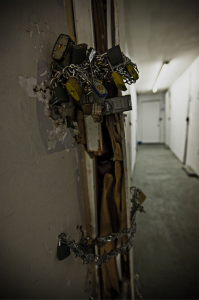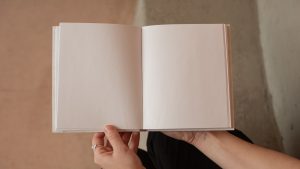At a recent workshop I attended, I was supported to explore my intention to have a relationship with fear and uncertainty. My intention was inspired by listening to one of David Whyte’s CD’s in my car (the only place in my life that still has a CD player). The idea of having a relationship with a part of myself where I typically do not feel supported piqued my curiosity. I thrive on being in relationships and have been lucky enough to have cultivated different communities that enrich my life and touch into different areas of who I understand myself to be. Part of my personal and professional development is proactively developing and maintaining these relationships from that with my loving husband, dog, family, friends, teachers, peers and clients. It takes work to cultivate these relationships, but it is work that feels effortless as there is clear intention and a sense of ease and flow with which I approach these connections. A client once shared that she has a “garden of friends” where some are seasonal, while others are perennials. Those of you who know me, will recall that I love using metaphors (maybe too much, sometimes?), so this “garden of friends” as a metaphor for the connections in my life resonates deeply. I feel fortunate to have many gardens, and I happily spend a lot of time tending them.
Taking the idea of all the time and energy I so willingly give to my botanical garden of relationships, what would it be for me to include the idea of relationship tending to aspects I view as my shadow side? Or those areas where I feel I am stuck or confused? At the workshop, my intention was to cultivate a relationship with fear and uncertainty. I had noticed that in some scenarios, I welcome uncertainty. As one of my dear mentors and friends, Mahmud Nestman once quoted, “Uncertainty is the crucible of possibility.” In my approach to professional and personal development, I am completely open and excited at the uncertainty of situations, meeting new people and learning, but in other situations, I resist uncertainty and couple it with fear.
This became most apparent to me starting last December, a couple of weeks before Christmas. Heavy rains in Vancouver resulted in our basement at home flooding. I was surprisingly calm at the outset, quickly cancelling a meeting I was about to attend, calling the insurance company, because I had no idea where else to start. It turned out, that was the right place. Having never made a home insurance claim before, I did not know what to expect. I was pleasantly surprised by the response time of the insurance company and restoration team. The kindness of our neighbours helping my husband and I bail out the basement was amazing too.
Fast forward to a couple of months ago when we discovered during the restoration that included tearing walls open in our 80-year-old house, that other work needed doing that was not related to the insurance claim. There was a breakdown of communication with the restoration company due to a handful of factors at that time; the result was I found myself mired in unwelcome uncertainty where I reacted with anger and frustration towards the project manager of the restoration company. Reflecting on this incident, and how I arrived at a shameful, ungracious way of interacting with another person (so unlike my more typical calm and collected self), I concluded that I was operating from a place of fear and uncertainty.
The flavour and experience of uncertainty in this situation was in stark contrast to the open and curious way I approach uncertainty when I view it in rich, learning environments with others. One interesting aspect is that if I can stand back and give myself space from the trigger of my fear, I see the abundant learning in these less than desirable situations too, but therein lies the rub. How to stand back and take time to build a relationship with that place when you are so caught up in fear? I am not sure if I will ever be able to always catch myself in time to objectively respond rather than react to fear in these situations. That’s probably why it’s called a trigger? Perhaps, if I can at least pay attention and notice my patterns in the aftermath, I can be more aware of my triggers? I have a simple mindfulness exercise I use and share with my clients that helps and will share in a future post.
Here is what I was able to discern after being supported with the love and wisdom in a group of wonderful friends who are also like-minded teachers at the workshop:
It’s OK to be scared when I feel uncertainty because the fear reminds me to pay attention and be alert, so I won’t be too reckless in the excitement of all the possibility or overcome by anxiety. Fear is my ally, not my foe if I can listen to and hear its messages.
My offering to you, dear reader is that you might be curious about how and if you can cultivate a relationship with parts of yourself or in areas of your life and career where you feel stuck, confused or unsupported.



